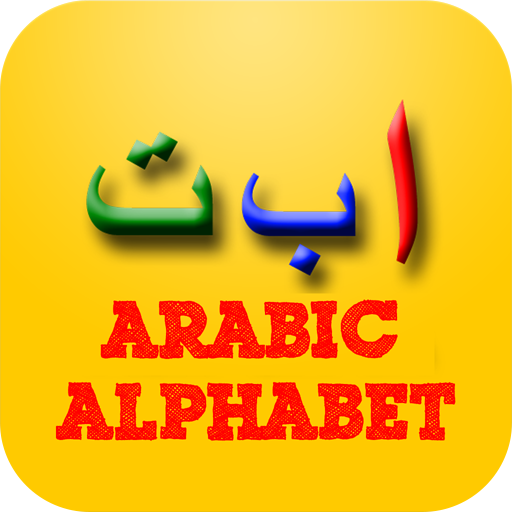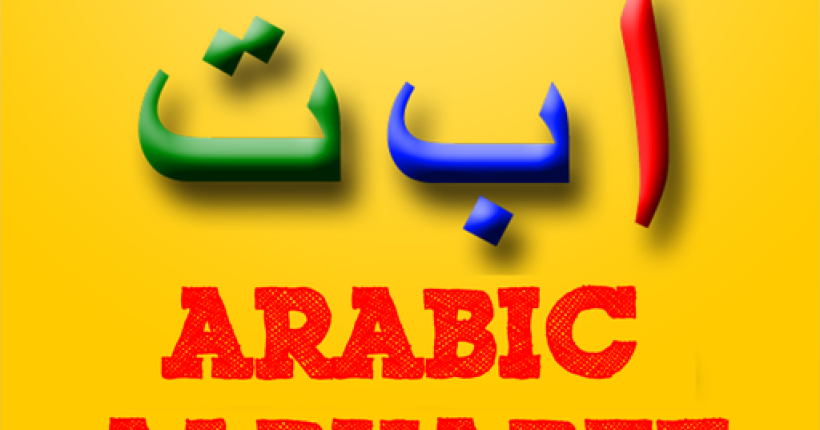Arabic vocabulary for food and dining is one of the most enjoyable and practical words to study when learning the Arabic language. Not only will you be able to use it if you travel to an Arab country, go to a restaurant, or to a market, but you will also be able to apply these words and phrases while dining with family or friends. Knowing what words will make the experience easier, and more meaningful.
Food is central to Arabic culture and hospitality, and knowing how to talk about it improves your language ability and connects you to people and the tradition.
In this guide you will learn basic food words, dining vocabulary, and common phrases you can expect to use in every day situations, so that you can use Arabic comfortably and confidently.
Common Arabic Vocabulary for Food and Dining
Below is a list of the most used Arabic vocabulary for food and dining:
| English Word | Arabic Word | Pronunciation |
| Bread | خبز | khubz |
| Rice | أرز | aruzz |
| Meat | لحم | laḥm |
| Chicken | دجاج | dajāj |
| Fish | سمك | samak |
| Egg | بيض | bayḍ |
| Cheese | جبن | jubn |
| Milk | حليب | ḥalīb |
| Butter | زبدة | zubdah |
| Salt | ملح | milḥ |
| Sugar | سكر | sukkar |
| Pepper | فلفل | filfil |
| Onion | بصل | baṣal |
| Garlic | ثوم | thūm |
| Tomato | طماطم | ṭamāṭim |
| Potato | بطاطس | baṭāṭis |
| Apple | تفاح | tuffāḥ |
| Banana | موز | mawz |
| Orange | برتقال | burtuqāl |
| Grapes | عنب | ʿinab |
| Watermelon | بطيخ | baṭṭīkh |
| Dates | تمر | tamr |
| Tea | شاي | shāy |
| Coffee | قهوة | qahwah |
| Water | ماء | māʾ |
| Juice | عصير | ʿaṣīr |
| Soup | حساء | ḥasāʾ |
| Salad | سلطة | salaṭah |
| Dessert | حلوى | ḥalwā |
| Ice Cream | بوظة | būẓah |
Dining Vocabulary: Useful Phrases for Restaurants
Here is a list of Arabic vocabulary for food and dining used in phrases to help you order food and more:
| English Phrase | Arabic Phrase | Pronunciation |
| I would like to order… | أريد أن أطلب… | urīd an aṭlub… |
| The menu, please | القائمة من فضلك | al-qāʾimah min faḍlik |
| What do you recommend? | ماذا تنصح؟ | mādhā tanṣaḥ? |
| I am vegetarian | أنا نباتي | anā nabātī |
| Without meat, please | بدون لحم من فضلك | bidūn laḥm min faḍlik |
| With sugar | مع سكر | maʿa sukkar |
| Without sugar | بدون سكر | bidūn sukkar |
| A glass of water, please | كأس ماء من فضلك | kaʾs māʾ min faḍlik |
| The bill, please | الحساب من فضلك | al-ḥisāb min faḍlik |
| How much does this cost? | بكم هذا؟ | bikam hādhā? |
| Delicious! | لذيذ! | ladhīdh! |
| Bon appétit (said to others) | بالهناء والشفاء | bil-hanāʾ wa-shifāʾ |
| Response to Bon appétit | شكراً، صحتين | shukran, ṣiḥtayn |
| I am full | أنا شبعان (m) / أنا شبعانة (f) | anā shabʿān / anā shabʿānah |
| I am hungry | أنا جائع (m) / أنا جائعة (f) | anā jāʾiʿ / anā jāʾiʿah |
| Tasty food | طعام شهي | ṭaʿām shahī |
Restaurant Dialogue in Arabic
Here is a dialogue to help you apply the Arabic vocabulary for food and dining that you have learned so far:
Scene: A customer enters a restaurant and speaks with the waiter.
Customer:
English: Good evening. A table for one, please.
Arabic: مساء الخير. طاولة لشخص واحد من فضلك.
Pronunciation: masāʾ al-khayr. ṭāwilah li-shakhṣ wāḥid min faḍlik.
Waiter:
English: Of course, this way please. Here is the menu.
Arabic: طبعاً، تفضل من هنا. هذه القائمة.
Pronunciation: ṭabʿan, tafaddal min hunā. hādhihi al-qāʾimah.
Customer:
English: Thank you. I would like chicken with rice, please.
Arabic: شكراً. أريد دجاج مع أرز، من فضلك.
Pronunciation: shukran. urīd dajāj maʿa aruzz, min faḍlik.
Waiter:
English: Would you like something to drink?
Arabic: هل تريد شيئاً للشرب؟
Pronunciation: hal turīd shayʾan lil-shurb?
Customer:
English: Yes, a glass of water, please.
Arabic: نعم، كأس ماء من فضلك.
Pronunciation: naʿam, kaʾs māʾ min faḍlik.
Waiter:
English: Very well. Anything else?
Arabic: جيد. هل تريد شيئاً آخر؟
Pronunciation: jayyid. hal turīd shayʾan ākhir?
Customer:
English: No, thank you. That’s all.
Arabic: لا، شكراً. هذا كل شيء.
Pronunciation: lā, shukran. hādhā kull shayʾ.
Waiter (after serving):
English: Enjoy your meal!
Arabic: بالهناء والشفاء!
Pronunciation: bil-hanāʾ wa-shifāʾ!
Customer:
English: Thank you, it looks delicious!
Arabic: شكراً، يبدو لذيذاً!
Pronunciation: shukran, yabdū ladhīdhān!
Waiter (after meal):
English: Would you like dessert?
Arabic: هل تريد حلوى؟
Pronunciation: hal turīd ḥalwā?
Customer:
English: No, thank you. The bill, please.
Arabic: لا، شكراً. الحساب من فضلك.
Pronunciation: lā, shukran. al-ḥisāb min faḍlik.
Waiter:
English: Here you go.
Arabic: تفضل.
Pronunciation: tafaddal.
Customer:
English: Thank you very much. Goodbye.
Arabic: شكراً جزيلاً. مع السلامة.
Pronunciation: shukran jazīlan. maʿa al-salāmah.
Now you know how to use the most common Arabic vocabulary for food and dining in real life conversation.
Market & Grocery Vocabulary
| English Word | Arabic Word | Pronunciation |
| Market | سوق | sūq |
| Grocery store | بقالة | baqqālah |
| Shop | متجر | matjar |
| Price | سعر | siʿr |
| Money | مال | māl |
| Discount | خصم | khaṣm |
| Kilo | كيلو | kīlū |
| Bag | كيس | kīs |
| Basket | سلة | sallah |
| Weight | وزن | wazn |
| Fresh | طازج | ṭāzij |
| Cheap | رخيص | rakhīṣ |
| Expensive | غالي | ghālī |
| Vegetables | خضروات | khuḍrawāt |
| Fruits | فواكه | fawākih |
| Bread | خبز | khubz |
| Rice | أرز | aruzz |
| Meat | لحم | laḥm |
| Chicken | دجاج | dajāj |
| Fish | سمك | samak |
| Cheese | جبن | jubn |
| Milk | حليب | ḥalīb |
| Oil | زيت | zayt |
| Salt | ملح | milḥ |
| Sugar | سكر | sukkar |
| Tea | شاي | shāy |
| Coffee | قهوة | qahwah |
| Eggs | بيض | bayḍ |
| Dates | تمر | tamr |
| Spices | بهارات | bahārāt |
| Flour | دقيق | daqīq |
| Honey | عسل | ʿasal |
| Butter | زبدة | zubdah |
Common Arabic Shopping Phrases
Here are some of the common Arabic vocabulary for food and dining used for shopping:
| English Phrase | Arabic Phrase | Pronunciation |
| How much is this? | بكم هذا؟ | bikam hādhā? |
| How much per kilo? | بكم الكيلو؟ | bikam al-kīlū? |
| I want half a kilo of… | أريد نصف كيلو من… | urīd niṣf kīlū min… |
| Do you have fresh (tomatoes)? | هل عندك طماطم طازجة؟ | hal ʿindak ṭamāṭim ṭāzijah? |
| Please give me one kilo of… | من فضلك أعطني كيلو من… | min faḍlik aʿṭinī kīlū min… |
| A little more, please | قليلاً أكثر من فضلك | qalīlan akthar min faḍlik |
| That’s enough, thank you | هذا يكفي، شكراً | hādhā yakfī, shukran |
| Do you accept card? | هل تقبل البطاقة؟ | hal taqbal al-biṭāqah? |
| I want a bag, please | أريد كيس من فضلك | urīd kīs min faḍlik |
| Can I try this? | هل يمكن أن أجرب هذا؟ | hal yumkin an ujarrib hādhā? |
| It’s too expensive | إنه غالي جداً | innahu ghālī jiddan |
| Can you make it cheaper? | ممكن أرخص؟ | mumkin arkhaṣ? |
| I’ll take it | سأخذه | saʾakhudhuh |
| I don’t want it | لا أريده | lā urīdhu |
Market Dialogue in Arabic
Here is a dialogue to help you apply the Arabic vocabulary for food and dining that you have learned so far:
Scene: A customer is buying fruits and vegetables at the market.
Customer:
English: Good morning. How much is a kilo of tomatoes?
Arabic: صباح الخير. بكم الكيلو طماطم؟
Pronunciation: ṣabāḥ al-khayr. bikam al-kīlū ṭamāṭim?
Seller:
English: Five pounds per kilo.
Arabic: خمسة جنيهات للكيلو.
Pronunciation: khamsah junayhāt lil-kīlū.
Customer:
English: I want two kilos, please.
Arabic: أريد كيلوَين من فضلك.
Pronunciation: urīd kīlowayn min faḍlik.
Seller:
English: Anything else?
Arabic: هل تريد شيئاً آخر؟
Pronunciation: hal turīd shayʾan ākhir?
Customer:
English: Yes, half a kilo of apples.
Arabic: نعم، نصف كيلو تفاح.
Pronunciation: naʿam, niṣf kīlū tuffāḥ.
Seller:
English: Here you go. That’s all?
Arabic: تفضل. هل هذا كل شيء؟
Pronunciation: tafaddal. hal hādhā kull shayʾ?
Customer:
English: Yes, that’s enough. How much in total?
Arabic: نعم، هذا يكفي. بكم الحساب؟
Pronunciation: naʿam, hādhā yakfī. bikam al-ḥisāb?
Seller:
English: Fifteen pounds, please.
Arabic: خمسة عشر جنيهاً من فضلك.
Pronunciation: khamsata ʿashar junayhan min faḍlik.
Customer:
English: Here you are. Thank you very much.
Arabic: تفضل. شكراً جزيلاً.
Pronunciation: tafaddal. shukran jazīlan.
Seller:
English: You’re welcome. Goodbye.
Arabic: على الرحب والسعة. مع السلامة.
Pronunciation: ʿalā al-raḥb wa-l-siʿah. maʿa al-salāmah.
Discover the Wonders of Arabic – Start Your Journey Today!
Start to learn the basics of Arabic with the Arabic for Beginners Course—designed for complete beginners to:
- Read and pronounce each letter with confidence
- Understand and use the vowel rules (short vowels, long vowels, Tanween, Sukoon, Shaddah) correctly
- Have a basic foundation for Qur’an reading and Arabic at a higher level of study
- Learn in a fun, structured and flexible way—using effective expert guided instruction
- Receive a certificate of completion so you can highlight your achievement
With around 30 hours of study you will be reading Arabic fluently and confidently for personal use, to understand the Qur’an, or to progress for advanced study.


